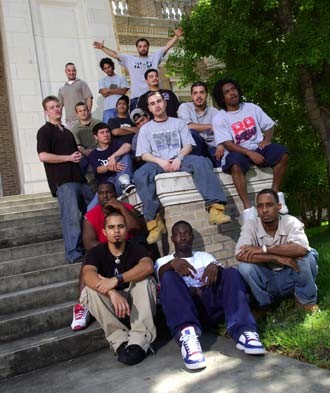|
By M. Solis "The people of Texas are informed that in accordance with a Proclamation from the Executive of the United States, all slaves are free. This involves an absolute equality of rights and rights of property between former masters and slaves, and the connection heretofore existing between them becomes that between employer and free laborer." It's been only 139 years since General Granger arrived in Galveston from up North, informing the Black folk of Texas that they were finally free. We all know that Lincoln's Emancipation Proclamation became official in1863, but like lots of other things in Texas, the word got here late. Theories abound on why and how the news broke two-and-a-half years after the fact in this state, but it's resulted in the 19th of this month being annually celebrated as Juneteenth. "Juneteenth is the celebration of freedom and an opportunity to see how far we have come from not too long ago, if you really think about it. I thank God that I can be able to do my music free, here in the states," says Treson "Tre" Scitio, 25, of the hip-hop/R&B band Mojoe. His fellow frontman Charles Peters, 24, adds: "The significance to me is the fact that everything that I'm able to do and express and pursue is possible because of Juneteenth, because of the fact that on that day there was a freedom extended to me. It's very significant especially now living here in Texas." Mojoe is among a host of local artists taking part in a Juneteenth performance scheduled for June 18 at Kingston Tycoon Flats, including the arty funk of Gonsemble, the collective turn-tablism of DJ 7ish and DJ Kico and a group of spoken-word performers. Largely through the efforts of African-American state legislator Al Edwards, Juneteenth became an official state holiday on January 1, 1980. Traditionally the date has been set aside for reflection, freedom, renewal, and the celebration of the African-American experience in America. Perhaps more importantly, the day acknowledged the horror of slavery and honors the memory of the estimated 100 million lives lost in the Black Holocaust. Juneteenth is also critical in that it forges a bond of consciousness that spans years, generations, and experiences. "When a people are enslaved for so long in your communities, mentally, you become accustomed to it, so you don't try to fight it off as much as physically," Peters says. "When something is in your face physically you fight a little bit harder and you're a little bit more aggressive. "When it's more mental you allow yourself to get sucked into it. I think mentally and economically there's still slavery going on. The free labor helped to build this country and right now it's cheap labor that's keeping it running. There's still a mind state and a food chain in the business and corporate America where the same people who were at the bottom 300 years ago are probably still there."
Whether as a form of active or passive resistance, music has always played a key role in the struggle for independence and knowledge of self. The links between these forms were explored recently by music writer Greg Tate. "Point black, hip-hop contains all the Black alienation rage and desperate desire for pleasure we used to hear in jazz, because hip-hop is a vessel for all that sound and fury and signifying." For Tre, the link between blues and more recent incarnations is quite evident. "A lot of our sound comes from the old blues, Robert Johnson's, the old school. It's all a chain. The blues came up around the time during slavery. Soul music has been inspired by the blues so it all comes from the same place. To see it now, to see that we still have that vibe of what music was back then. It's totally spiritual." 7ish furthers the sentiment: "If there is no spirituality in hip-hop, there won't be no positivity in it to teach the children, and that comes with Juneteenth too. Most people in this world think hip-hop is bad but when you listen to local groups like Assassyn Dynasty, Aztex, Mojo, Gonsemble, and a lot of other groups, it's spiritual. It's not just cats on the mike talking this and that. There's a lot of evil that goes on in the world and for me when I say spirituality, when it comes to my lyrics, that's how I repent to God." • By M. Solis
|


